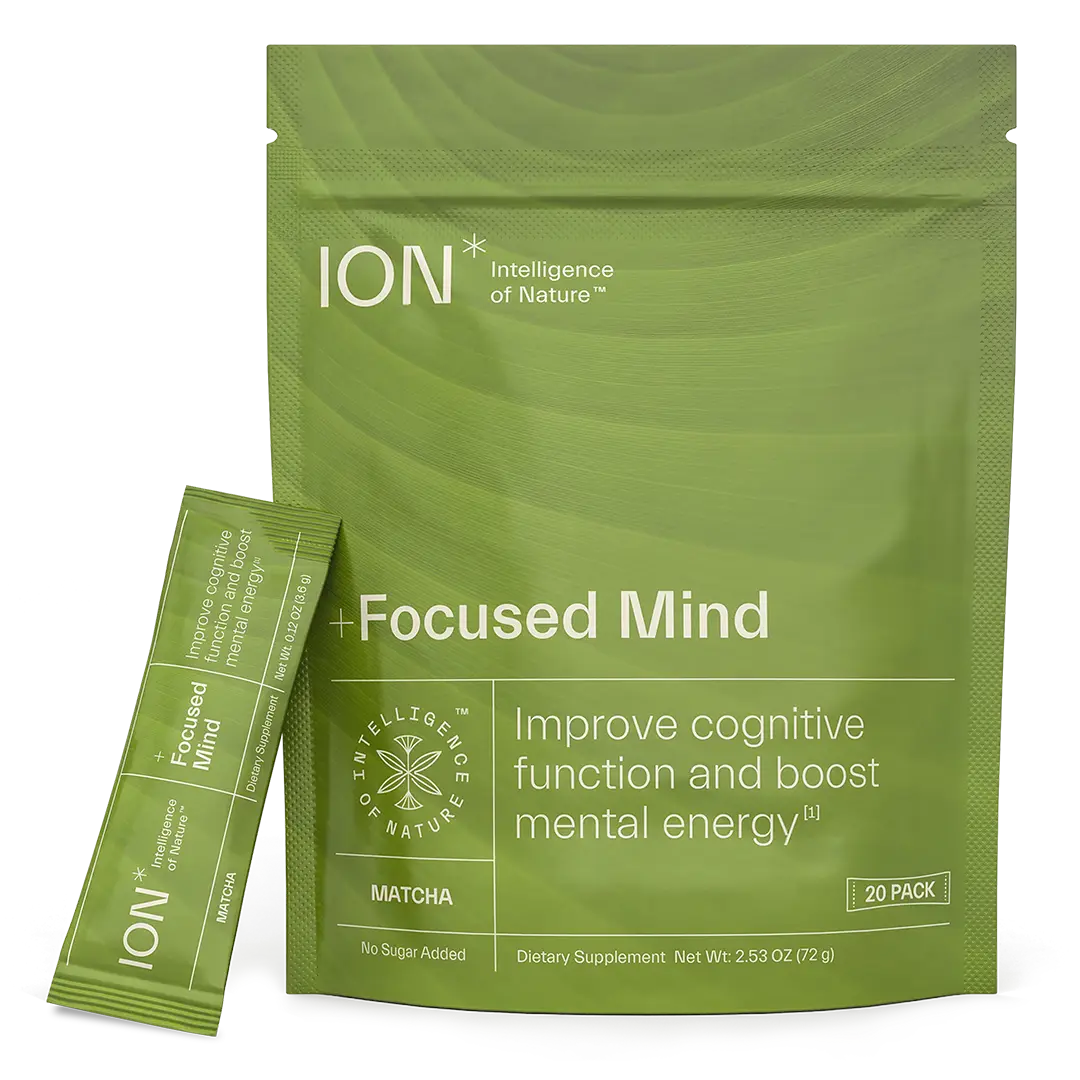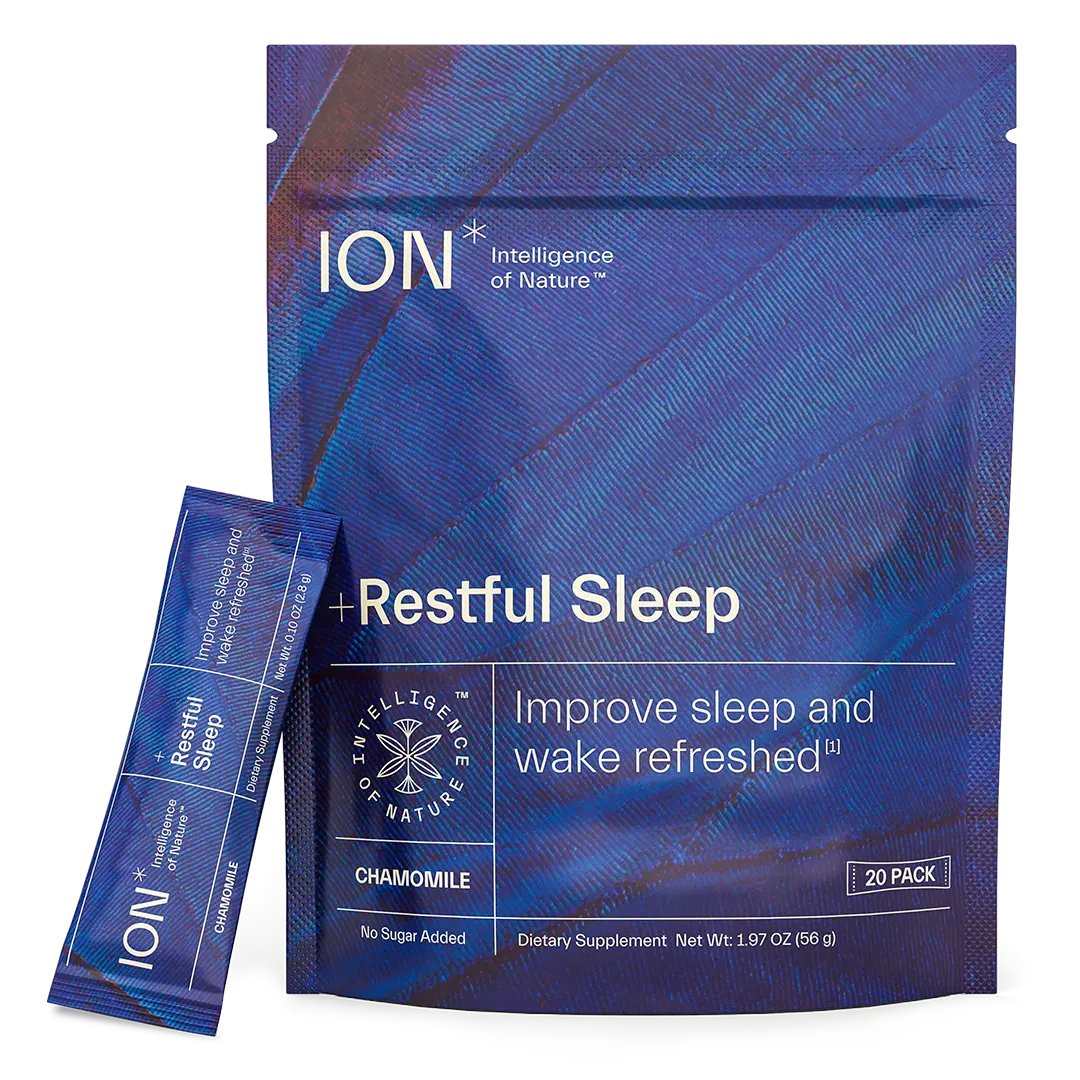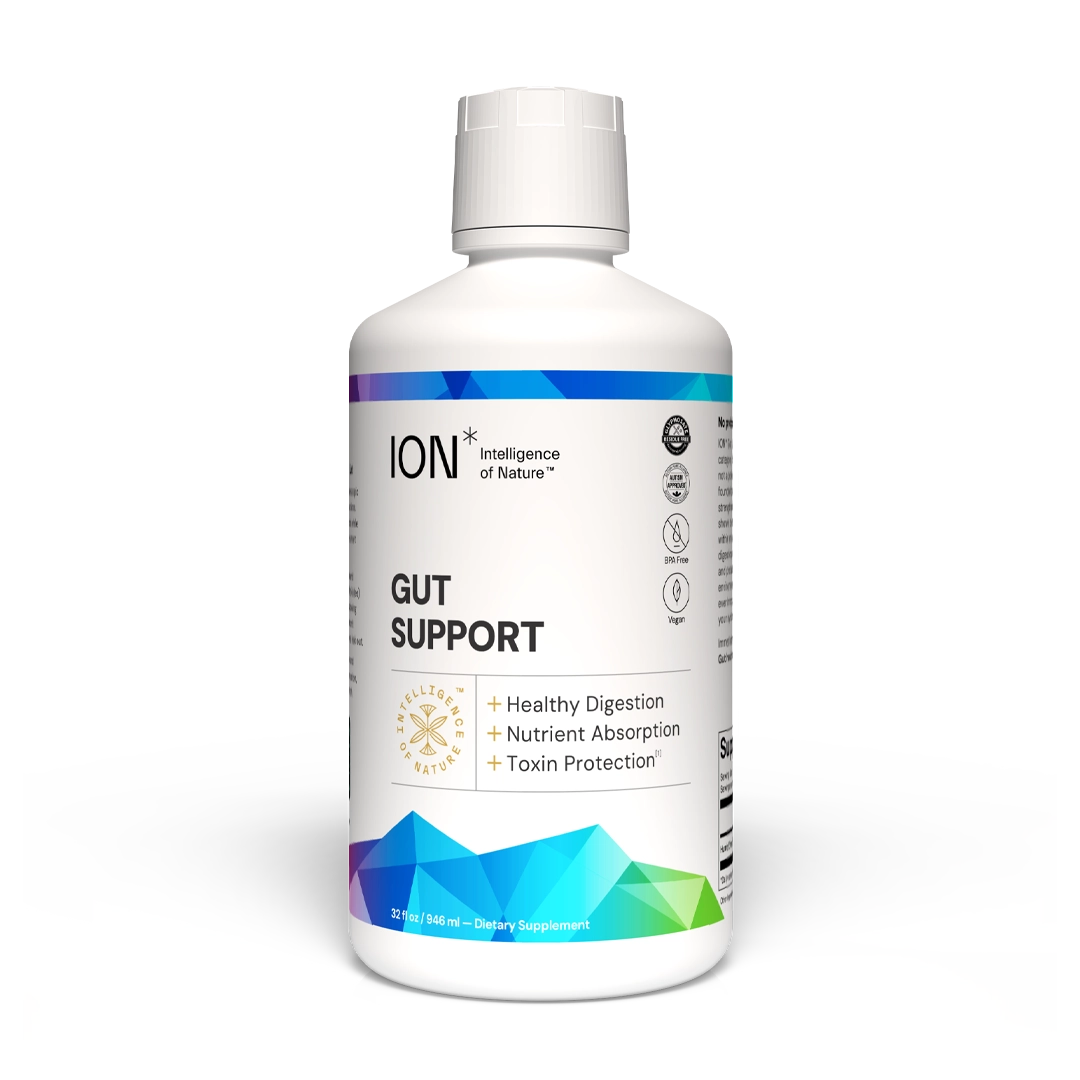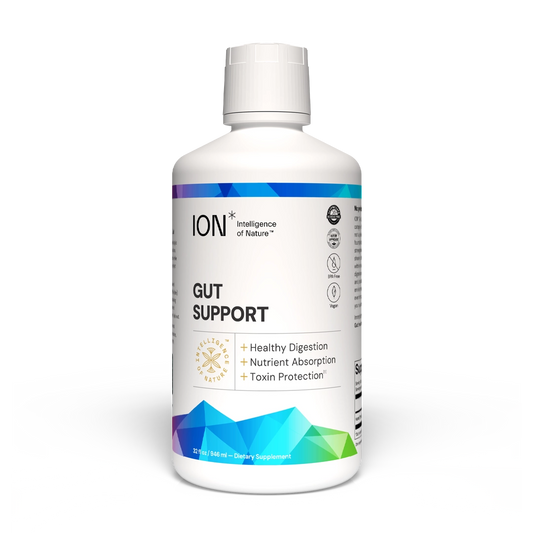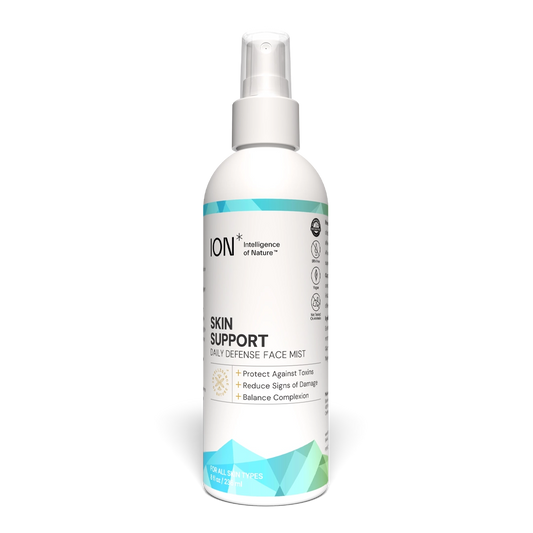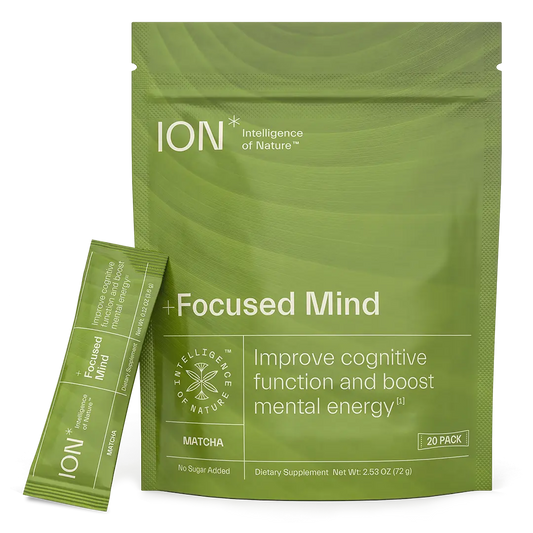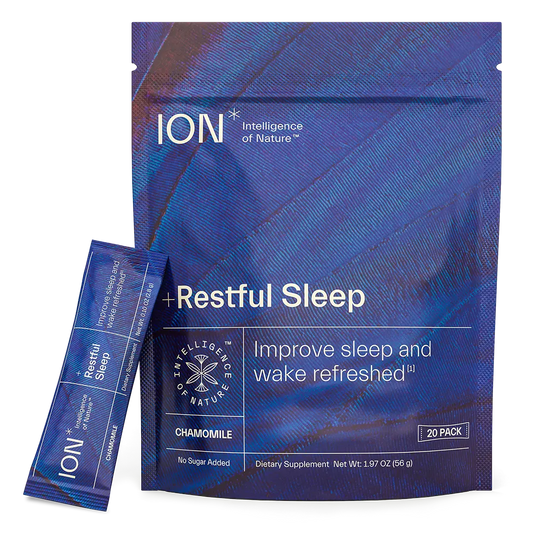Spring is in the air, which means we’re all about to get beautiful blooms, sunny days, light breezes, and hear the familiar sounds of “achoo!” echoing throughout the land from all those who suffer with seasonal allergies.
To be fair, seasonal allergies can happen in any season, but they’re often associated with warmer months. Regardless of what’s causing the reaction, an allergy (aka “allergic rhinitis”) that occurs in a particular season is more commonly called “hay fever”, a name stemming from hay-cutting season when people would experience allergy symptoms.
Do you suffer from seasonal allergies? Before you reach for OTC pills, antihistamines, or eye drops consider this: in addition to sinus health, a healthy gut may help alleviate your symptoms.
What Are Seasonal Allergies?
So, what exactly is going on when we get these sniffles and sneezes? Essentially, hay fever is your immune system reacting to an outdoor allergen, like pollen, which triggers an allergic response (runny nose and eyes, etc).
What Causes Seasonal Allergies?
According to the American Academy of Allergy, Asthma & Immunology, about 8 percent of Americans experience hay fever / seasonal allergies. Interesting fact: the most common allergens are actually pollen from “wind-pollinated” plants like trees, grasses, and weeds, versus insect-pollinated plant pollen that’s too heavy to stay airborne for long and therefore less likely to trigger an allergic reaction.
Due to the nature of most triggers for seasonal allergies, people are less likely to experience them in the winter, but it is still possible to experience allergic rhinitis throughout the year, as different plants emit their respective pollen during different seasons.
Signs You May Have Seasonal Allergies
How can you tell if you have hay fever or seasonal allergy symptoms? Well, if you have allergic symptoms that only occur at certain times of the year, it’s a pretty good sign that you’re dealing with seasonal allergic rhinitis. Your doctor may also check your ears, nose, and throat to make a diagnosis but most people don’t need to undergo specific allergy testing, as the treatment will likely be the same, regardless of whatever allergen you react to.
Symptom-wise, sneezing is the first thing that usually comes to mind when one thinks about allergies and allergic reactions, but there are more signs as well, including:
- Runny or stuffy nose
- Watery and itchy eyes
- Itchy sinuses, throat, or ear canals
- Ear congestion
- Postnasal drainage
And less common symptoms that can also be connected to hay fever include:
- Headache
- Shortness of breath
- Wheezing
- Coughing
Unfortunately, many people with hay fever also have asthma, meaning seasonal allergens could trigger an asthma attack – which is why it’s important to not just focus on stopping a stuffy nose to help control these reactions.
Treating Seasonal Allergies
The most commonly accepted solution for treating seasonal allergies and hay fever is totally avoiding allergens that trigger symptoms. For those who experience seasonal allergies in hotter months, it’s recommended to use an air conditioner with a HEPA filter to cool your home, instead of ceiling fans, in order to keep allergens from continually circulating. On top of that, checking weather reports for pollen counts and staying indoors when counts are high may also be helpful.
There are some natural seasonal allergy treatment “remedies” that do not have scientifically supported evidence to their efficacy. While we are big supporters of all things Mother Nature and her intelligent design, some of these remedies can be dangerous. For example, people don’t realize that neti pots absolutely need distilled, sterile, and/or filtered water for treatment – as even tap water that’s safe to drink may contain harmful amoeba and bacteria that are killed by stomach acid when consumed, but can easily live in the sinuses.
Of course, medications exist that treat symptoms of hay fever, too. OTC (over-the-counter) decongestants and antihistamines can help alleviate seasonal allergies. If those aren’t strong enough, prescription medications like steroid nasal sprays, may be recommended. In the most severe cases, your doctor may recommend allergy shots, a type of immunotherapy that can help to essentially “desensitize” your immune system to allergens giving you issues.
The flip side is that many allergy medications can have undesirable side effects, including drowsiness, dizziness, and confusion. Not ideal, but a tradeoff many of us make to be able to breathe freely…which is of course, very important.
But is medication, sticking a spout up your nose, or total outdoor avoidance our only options for allergy relief? Maybe not, according to emerging research.
The Connection Between Your Gut Health and Seasonal Allergies
Consider this: allergies are an immune response. And over 70% of your immune system is found in your gut. A connection between gut health and allergies isn’t that far of a stretch to imagine. Alleviating allergies could be aided with a better immune response – and better immune response happens when you have a healthier gut.
Think of it this way, hay fever happens when your immune system incorrectly identifies an airborne substance that’s usually harmless as dangerous, and releases histamines and other chemicals into your bloodstream that produce symptoms of an allergic reaction. If your immune system was better able to identify what was a threat and what is not, allergic reactions would be less likely and possibly less severe.
This isn’t just an assumption, research shows seasonal allergies also correlate closely with poor gut health. GI disorders, like IBS, GERD, gastritis, peptic ulcers, colitis, and constipation were associated with increased odds of having seasonal allergies, eczema, and asthma. Studies have also shown adults with seasonal allergies have lower levels of “good” gut bacteria compared those with healthy guts. This microbiome and allergy connection is why it’s important to help your gut microbiome diversify and thrive, so your immune function can flourish and help stymie allergic response.
So, yes, as strange as it may sound at first blush, improving your gut health might be your ticket to enjoying springtime.
ION* for Better, Sans-Allergy Seasons
How can you best improve your gut health? Go straight to the source.
ION* Gut Support is your gut’s proven effective gut-strengthening MVP, going straight to the cellular junctions in your intestinal walls to tighten and seal the gut-lining–keeping toxins out and nutrients in, fortifying immune response, creating a better terrain for a thriving microbiome, and aiding with better overall digestion to ease common stomach issues. Unlike any probiotic, prebiotic, or other narrowly-focused supplement, ION* works differently because it is an entirely different product, one that doesn’t add anything new to your system but instead helps innately support what Mother Nature gave you so your body and its defenses can function their best.
